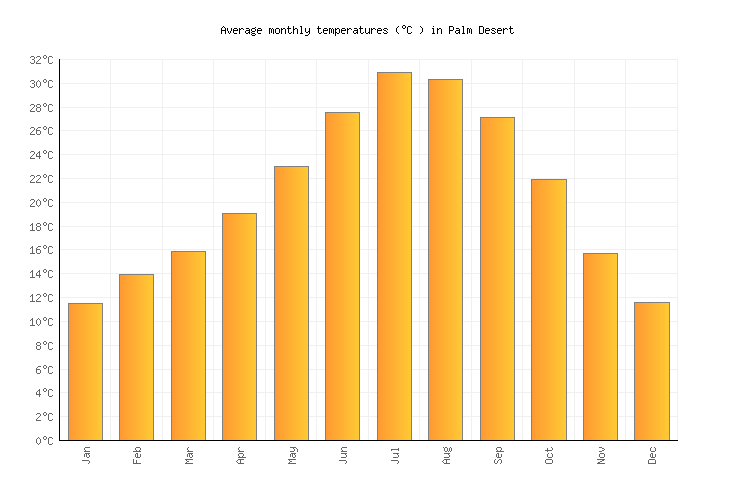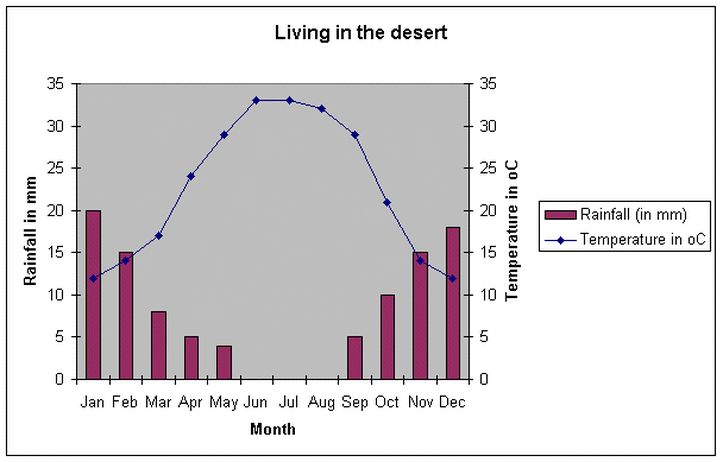
The researchers did not assume that increased heat will necessarily affect attendance. Similarly, heat is also projected to impact the annual Coachella music festival, which began in 1999, and attracts roughly 250,000 concertgoers. The research team found that it stands to lose up to $1.44 million annually in tourism in today's dollars with 18 percent fewer visitors at the end of the century. The Living Desert, established 50 years ago, is a nonprofit zoo visited by more than 510,000 people last year. In order to assess future effects of increased heat, the researchers analyzed two key components of the local tourism industry in addition to the winter weather: the number of visitors to The Living Desert Zoo and Gardens, a popular outdoor zoo, and the likelihood of extreme heat at the Coachella music festival. "In both cases we saw big declines in the number of days suitable for snowbirds, but this was much more pronounced in the scenario with no emissions reductions."

"The two scenarios differed a little by mid-century, but were very different by 2100," said Francesca Hopkins, assistant professor of climate change and sustainability. The researchers modeled two different future climate scenarios - one in which heat-trapping gases are significantly reduced, resulting in slowed warming, and one in which emissions are not mitigated at all. Employment follows these patterns, with regional employment declining by 7.2 percent between April and October in 2017. Many businesses in the Palm Springs area already close due to lack of customers during the hot summer months, when daytime high temperatures average up to 108 degrees in July and August. These changes are enough to prevent many from patronizing the area's famous outdoor attractions and events such as the annual Coachella Valley Music Festival, according to the study published this week in the journal Climatic Change. However, due to climate change, the number of days above 85 degrees between November and April is projected to increase by up to 150% by the end of the century.

His ashes will be entrusted into the loving care of the Milanese family to be interred with Faye in Dryden, Ontario at a later date.Thousands known as "snowbirds" flock to the region annually from elsewhere in the country to escape freezing winters.

Bradley Bell and the staff at Stanford Care Centre.Īs per Don’s specific request, there will be no service. As his health failed he remained very stoic and uncomplaining.ĭon was very grateful for the kind and compassionate care from Dr. He was always up to an interesting conversation on current affairs. Throughout the years, Don enjoyed hearing from his many friends and Faye’s siblings. He then moved to the Stanford Care Centre and resided there until the time of his passing. When his beloved Faye passed in August of 2002, Don remained in their home until January of 2015. Don and Faye also enjoyed numerous RV trips to Mexico and to Palm Desert in California.

Upon acquiring their captains papers they began to travel the amazing waters of Vancouver Island and area. They purchased a 32 foot Tollycraft boat named “Misty Dawn”, after their beloved German Shepherd. When the time came for Don and Faye to retire they moved to Parksville on Vancouver Island. Don loved to recall the many fish fries they had over the years. They enjoyed the outdoors, camping, fishing and spending time with their friends. Don often spoke throughout his life of his love and respect for Leo.ĭon met and married Faye Dupre who had moved to Dryden for employment at the Dryden Regional Health Centre. He was very proud of the success he achieved with his business.Īs a teen he formed a lasting and life long “brother-ship” with his dear friend Leo Milanese. Don lived his youth and adult years in Dryden. Donald McArthur passed away peacefully on at the Stanford Care Centre in Parksville, B.C.ĭon was born in Dryden, Ontario on Januto parents Donald Sr.


 0 kommentar(er)
0 kommentar(er)
